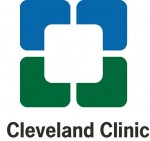 The content and information below is republished with permission from the Cleveland Clinic.
The content and information below is republished with permission from the Cleveland Clinic.
Chronic disease has reached epidemic proportions in America. Millions of people suffer from chronic conditions like fatigue, chronic pain, diabetes, obesity, depression, autoimmune disease, fibromyalgia and chronic headaches (to name a few). If you’re one of them, a new approach may help you.
“We are leaders in acute care in this country. But we are in a chronic care crisis,” says Melissa Young, MD,Head of the Center for Integrative Medicine. “I believe an integrative functional medicine approach that focuses on the patient and on treating the underlying cause of disease can better address the chronic care crisis.”

Considering the whole person — and more
Dr. Young combines functional medicine and integrative medicine in her practice. The two disciplines complement, rather than replace, traditional medicine. In integrative medicine:
- You and the practitioner are partners in the healing process.
- All factors that influence your health, wellness and disease are considered. This includes not just your body, but your mind, spirit, and community, too.
- Treatments should be effective, natural and less invasive whenever possible.
- Both conventional and alternative methods help to facilitate the body’s innate healing.
Functional medicine also supports a partnership between you and the practitioner, and stresses that you take ownership of your own healing. But it offers a brand new way to assess, treat and prevent chronic disease.
Uncovering the roots of chronic disease
Functional medicine looks at the interactions among genetic, environmental and lifestyle factors that can influence your long-term health. These factors can also lead to complex, chronic disease.
Dr. Young stresses that integrative functional medicine experts are not primary care physicians. They are part of the healthcare team led by a good primary care doctor who coordinates your care.
The initial visit with an integrative functional medicine specialist begins with an extensive health history that includes:
- A detailed medical history
- An in-depth exploration of your diet, physical activity, supplements, exposure to environmental toxins, sleep habits, stressors and life-shaping events
- Determining your health goals
- Developing a treatment plan to help you work toward those goals in step-wise fashion
Functional testing
“We see a lot of patients who don’t feel well despite normal blood work and physical examinations with their primary care physicians. But the absence of disease does not denote health and wellness,” says Dr. Young. “Integrative medicine and functional medicine have the tools for deeper assessment and treatment.”
Functional medicine testing involves laboratory tests for biochemical and nutrient imbalances. Testing is individualized for each patient, based on their symptoms and medical history.
“We can also test for imbalances in other areas that give us specific information to create a personalized treatment plan for each patient,” says Dr. Young. Examples include:
- Detoxification and biotransformation imbalances
- Hormone imbalances
- Underlying causes of inflammation
- Digestive and absorptive imbalances
- Imbalances in gut microbiota
- Genetic mutations like MTHFR that influence methylation pathways
We are more than our genes
Dr. Young believes nutrigenomics is an important piece of the puzzle. “Food provides information that can influence genes,” she says. “Our thoughts (positive vs. negative self-talk), physical activity and how we manage stress also influence whether certain genes are turned on or off.
“Lifestyle education and support are key in this age of fast food, sedentary lifestyles and overabundant stress. It is important to understand that we are not exclusively our genetics. The lifestyle choices we make every day can significantly influence our health.”
A matter of balance
Supplements and diet can help correct any nutrient imbalances that are found. Healthier lifestyle choices and an integrative functional medicine approach to health can support healing of body, mind and spirit.
Four to six weeks after the initial one-hour visit, Dr. Young meets with patients to explain functional test results and to adjust the treatment plan. Treatment may include lifestyle recommendations, a therapeutic elimination diet, supplements, acupuncture, Chinese herbs, holistic psychotherapy or chiropractic care.
Usually after three months, patients return for a visit to see how they’re responding to the treatment plan. Once they reach their initial goals, Dr. Young typically sees them annually to make sure that everything remains in balance and to address any new symptoms.
“We’ve seen amazing improvement in quality of life, and improvement and resolution of symptoms,” says Dr. Young.
Aging gracefully
Fatigue, aches and pains are not inevitable with aging, Dr. Young believes. After working together, she says patients often tell her they have never felt this good, even in their 20 and 30s.
-Chronic Conditions Team, health.clevelandclinic.org
